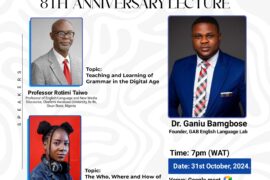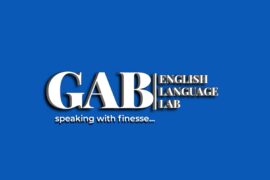Determiner or Adjective?
These two word classes are mostly confused as being same by many. This is perhaps because determiners, under traditional grammar, used to be one of the major parts of adjectives called limiting adjectives and the other part being descriptive adjectives. Modern linguistics has however differentiated them with sufficient grammatical justifications. Now, how are determiners different from adjectives?
Determiners are words that “help to identify or determine a noun in terms of reference, quantity, location or possession (Anko 2004). Determiners belong to four classes and they are: articles (a, an, the), demonstratives (this, that, these, those) possessives (my, her, his, their its (mark you, these are different from possessive pronouns: mine, hers, his, theirs, its), quantifiers (all, both, once, other, same).
Determiners do not qualify or describe nouns like adjectives. Let us demonstrate this:
These men
Fine men
In the first expression, the word ” these” does not qualify or tell us about the noun “men”; it only limits the noun in terms of reference (i.e., I am talking about these men and not, those men). ” These” paints no picture and does not give any description of the men. It is therefore not an adjective but a determiner. In the second utterance, “fine” tells us about the men. It describes the noun in question. It is therefore an adjective because it describes the noun.
We can further differentiate determiners from adjective in the following ways:
1. Within the structure of a noun phrase, determiners precede adjectives:
These fine men.
A happy home.
Some brilliant students.
This order cannot be reversed.
2. Adjectives are compared but determiners are not. So, we can say: fine, finer, finest (but not, a, aer, east; happy, happier, happiest (but not, this, thiser, thisest); brilliant, more brilliant, most brilliant (but not, some, somer, somest).
3. Lastly, Tallerman (1998) argues that if two word classes would be merged, then it should be determiners and pronouns and not determiners and adjectives. This is because determiners function as pronouns and vice versa. For instance:
This bag is fine (this as used here is a demonstrative determiner because it precedes a noun)
This is lovely (this as used here is a pronoun because it occurs alone as a replacement for a noun).
We are happy (we here is a pronoun)
We students need to be more serious (we here is a determiner)
May I guess you have a clear picture of how these word classes differ.
Keep learning!
(c) 2018 Ganiu Abisoye Bamgbose (GAB)
References
Anko Paul (2004) English in Use
Tallerman Maggie (1998) Understanding Syntax



1 Comment
Sir, you got me more knowledge 😊🎯❤️❤️